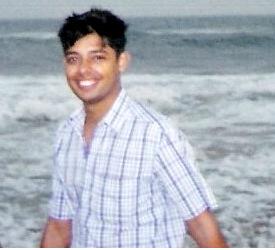From Chernobyl to Bhopal
Sitting on the crouch and flipping through the channels often lead you to complete passiveness and absent mindedness. For a change, yesterday while surfing through limited channels accessible in airwaves of Madras I finally paused on BBC and landed on something related to a place called Chernobyl.
It was 20th anniversary of Chernobyl disaster and Ukrainian government was commemorating the occasion by paying homage to millions of people who were severely affected. For people who are unaware about Chernobyl disaster, admittedly I never knew about it till yesterday, it was the worst human-engineered-disaster to struck mankind. In former Soviet Union exactly twenty years ago on 26th April 1986, one of the four nuclear reactors at Chernobyl power station exploded killing thousands, contaminating millions and crippling many more. It’s said the radiation was 100 times stronger than the atom bombs dropped on Hiroshima and Nagasaki.
The closest event that I can relate to the Chernobyl is that of Bhopal Gas tragedy. The fallout of uninhibited industrialization without control in under developed India. Despite the disaster striking the man kind in same fashion, how two different civilizations treat the magnanimity of the issue is quite contrasting. Entire Ukraine still stands for cause of people displaced or still settled in and around Chernobyl. The Head of State of Ukraine acknowledges the tragedy yet in no way the country restrains itself from harnessing its resources for further development. “We are blessed with Uranium and we have to live and die by it.”
An old lady refuses to leave her plot of land near the nuclear reactors for she considers it as her child.
May be when I consider my own country been struck by such disaster, the lack of sensitivity is alarmingly of high proportion. It was not until I tread through the pages of Dominique Lapirerie’s vivid description of the Bhopal catastrophe in “Five past midnight’ the enormity of event struck me. Yet it’s difficult to imagine India commemorate for the deceased in such large scale that it draws international media attention. I suspect how many of us actually know when such calamity of gargantuan proportion struck us. May be that’s how simplistically and spiritually we live in India.
Earlier in the show on BBC, there was an interview with Bollywood actress Priety Zinta on diverse issues crippling India. When she said that “In India Life is cheap”, I couldn’t find a better exemplification to substantiate the point. 9/11 has become a jargon, a fad to describe world prior and after a certain event. I presume none of us would associate Indian industrial dynamics with 3rd December 1984.
Yet amidst the difference of civilization and sensitivity, one thing strikes is the interminable resilience of survivor is remarkably similar. Be it Chernobyl or Bhopal none of the survivors want to get displaced from their roots. They still pledge to live and die for the land The still fight several ailments and post traumatic disorders in similar way. May be that’s what unite human beings across the race and civilization.
It was 20th anniversary of Chernobyl disaster and Ukrainian government was commemorating the occasion by paying homage to millions of people who were severely affected. For people who are unaware about Chernobyl disaster, admittedly I never knew about it till yesterday, it was the worst human-engineered-disaster to struck mankind. In former Soviet Union exactly twenty years ago on 26th April 1986, one of the four nuclear reactors at Chernobyl power station exploded killing thousands, contaminating millions and crippling many more. It’s said the radiation was 100 times stronger than the atom bombs dropped on Hiroshima and Nagasaki.
The closest event that I can relate to the Chernobyl is that of Bhopal Gas tragedy. The fallout of uninhibited industrialization without control in under developed India. Despite the disaster striking the man kind in same fashion, how two different civilizations treat the magnanimity of the issue is quite contrasting. Entire Ukraine still stands for cause of people displaced or still settled in and around Chernobyl. The Head of State of Ukraine acknowledges the tragedy yet in no way the country restrains itself from harnessing its resources for further development. “We are blessed with Uranium and we have to live and die by it.”
An old lady refuses to leave her plot of land near the nuclear reactors for she considers it as her child.
May be when I consider my own country been struck by such disaster, the lack of sensitivity is alarmingly of high proportion. It was not until I tread through the pages of Dominique Lapirerie’s vivid description of the Bhopal catastrophe in “Five past midnight’ the enormity of event struck me. Yet it’s difficult to imagine India commemorate for the deceased in such large scale that it draws international media attention. I suspect how many of us actually know when such calamity of gargantuan proportion struck us. May be that’s how simplistically and spiritually we live in India.
Earlier in the show on BBC, there was an interview with Bollywood actress Priety Zinta on diverse issues crippling India. When she said that “In India Life is cheap”, I couldn’t find a better exemplification to substantiate the point. 9/11 has become a jargon, a fad to describe world prior and after a certain event. I presume none of us would associate Indian industrial dynamics with 3rd December 1984.
Yet amidst the difference of civilization and sensitivity, one thing strikes is the interminable resilience of survivor is remarkably similar. Be it Chernobyl or Bhopal none of the survivors want to get displaced from their roots. They still pledge to live and die for the land The still fight several ailments and post traumatic disorders in similar way. May be that’s what unite human beings across the race and civilization.


